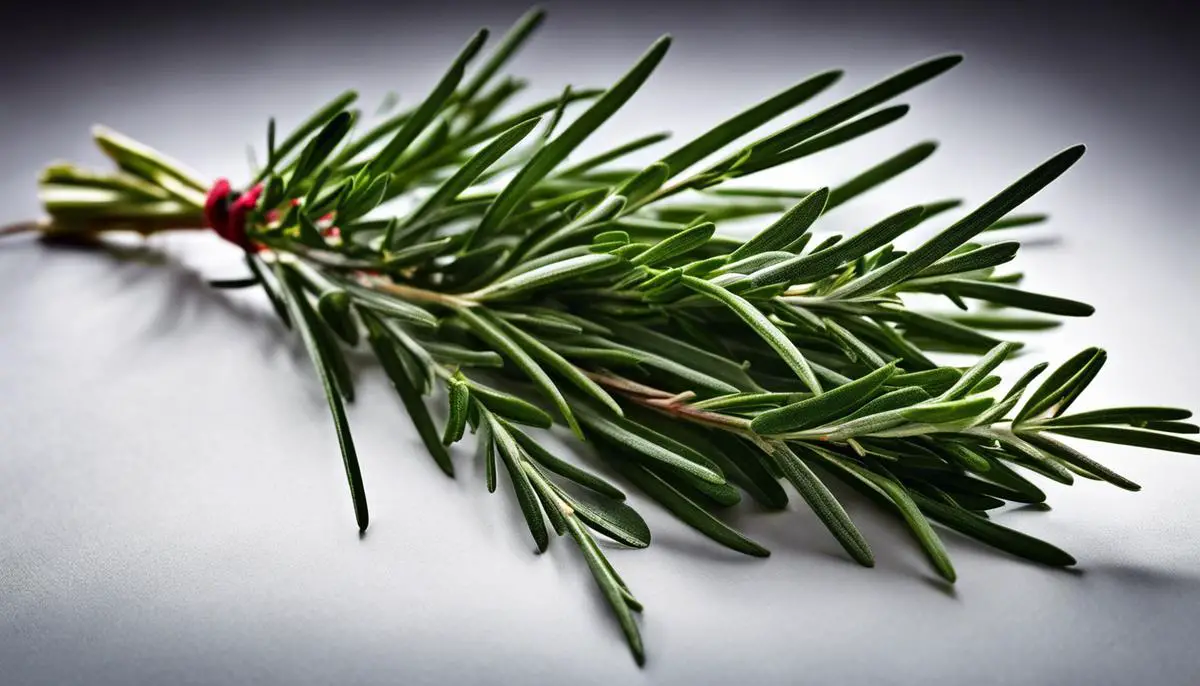
Health Benefits of Rosemary
Rosemary, a fragrant herb known for its needle-like leaves and woody aroma, has played a significant role in culinary and medicinal practices around the world.
Beyond its popular use as a seasoning, rosemary boasts a range of health benefits, primarily attributed to its potent antioxidants and anti-inflammatory compounds. These substances work together to bolster the body’s immune system, while also providing protection against chronic diseases. For instance, the antioxidant properties of rosemary can help neutralize harmful free radicals in the body, potentially lowering the risk of cancer and heart disease.
Moreover, rosemary has been associated with enhancing cognitive function and memory retention. This is partly because of its ability to increase blood flow to the brain, thus providing it with more oxygen and nutrients. Studies have suggested that inhaling rosemary oil can improve concentration and memory, making it a point of interest for researchers exploring treatments for cognitive impairments associated with aging. Additionally, the herb has been used to alleviate stress and anxiety, thanks to its calming effects on the nervous system. Whether added to dishes as a flavor enhancer or used in essential oil form for aromatherapy, incorporating rosemary into your daily routine could support overall health and well-being.

Culinary Uses of Rosemary
Rosemary’s adaptability in the kitchen spans beyond its aromatic flavor, serving as a testament to its versatility in cooking. This herb shines in a variety of culinary applications, from seasoning meats such as chicken, lamb, and pork, to enhancing the flavors of soups, sauces, and even baked goods. Its robust aroma and piney flavor profile make it a staple in Mediterranean cuisine, where it’s often paired with olive oil and garlic to marinate dishes, creating a depth of flavor that elevates simple ingredients to gastronomic delights. Moreover, rosemary’s ability to withstand long cooking times without losing its essence allows it to infuse dishes with a consistent, savory undertone, making it an indispensable herb in slow-cooked recipes.
Another facet of rosemary’s versatility in cooking lies in its capacity to be used in both fresh and dried forms, each offering a distinct culinary experience. Fresh rosemary, with its tender leaves and vibrant flavor, is perfect for garnishing and adding a burst of freshness to dishes, while dried rosemary, characterized by a concentrated, earthy taste, suits prolonged cooking processes, releasing its flavors gradually. This duality ensures that rosemary can be seamlessly incorporated into a multitude of recipes, regardless of cooking style or preparation method. The herb’s resilience in retaining its flavor profile across different forms and cooking techniques cements its status as a versatile and indispensable tool in the culinary world, capable of bridging the gap between the simplicity of home cooking and the complexity of gourmet cuisine.




